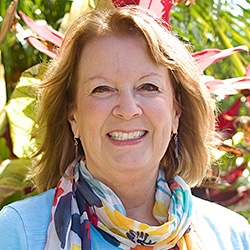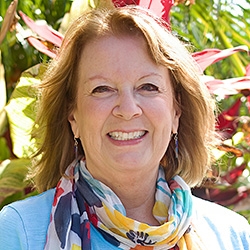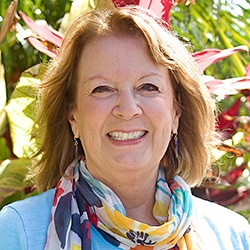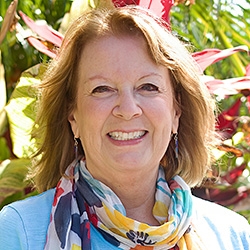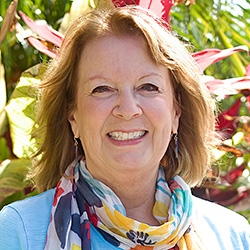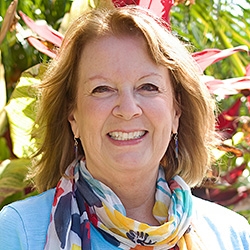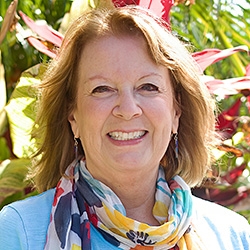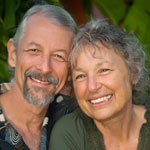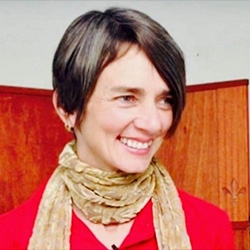
Search Results: duty
-
-
Empathy alone can be unreliable in guiding compassionate action. As seen in historical events, military training, personal anecdotes, and scientific experiments, empathy alone may not prevent people from harming others. A sense of duty or obedience, often instilled through fear of punishment and shame, might inhibit empathic action. The antidote may be to fostering empathy without resorting to control, shame, or punishment.
-
Trainer Tip: Today, when you tell yourself that you "have to" or "should" do something, notice what you feel and experience - is it a sense of duty, obligation, guilt, shame, overwhelm, constriction, heaviness? Then consider the underlying needs you are trying to meet with the activity. This can shift the purpose and intention with an energy that motivates our actions can bring empowerment and joy to our lives.
-
During the holiday season we may find ourselves taking responsibility for other's feelings, which can lead to guilt, shame, depression, and resentment. These feelings are exacerbated by the habitual pattern we call the "Vortex of Submission" (being hooked by a sense of duty and obligation). Read on for ways to recognize and break the pattern.
-
Marriage can be seen as a limit on freedom. Ideas of compromise collude with this view. Instead, notice when your "yes" to your partner is laden with obligation, duty, guilt, fear, or an attempt to win love or approval, and how it's not a truly free "yes". True freedom is different from compulsion, and doesn't conflict with other needs. When have you experienced true freedom? What conditions support your access to freedom?
-
Trainer tip: When you tell yourself that you have to do something, you're more likely to disconnect yourself from the needs you’re trying to meet, and also diminish the joy in your life. Instead, experiment with translating your “shoulds” and “have tos” into the need you are trying to meet.
-
When we ask something of a person and threaten negative repercussions if she doesn’t comply, we're making a demand. Demands limit the possible responses and reduce joyful participation. Instead, look to find mutually satisfying resolutions. And look for ways to change your demand into a request. Read on for more.
-
Pay attention to when you're motivated by guilt, duty, obligation, shame, and worry. How do you feel? Does it bring up resentment, rebellion, submission, reactivity or resistance? When you're motivated by joy notice how that feels, and how others respond. Read on for a related story.
-
Trainer Tip: When faced with doing a task that doesn't seem fun try saying to yourself something to the effect of “I do this activity because I value...”. Complete the sentence with related needs, then ask yourself if you still want to complete the task. This can take the demand out of the tasks. Next, choose accordingly. This can teach you about, or give you more access to, true choice in life.
-
Trainer Tip: The surest way to enjoy life is to do things that meet your needs. If you don’t enjoy a particular activity, consider the need you hope to meet by doing it. For instance, for each item you want to do consider the needs you're trying to meet. Connect to the joy of that need. Then for each ask: “How would I feel if I delayed finishing this item?”. Consider which items you want to continue, pause, or reprioritize. This can help increase life enjoyment.
-
Trainer Tip: It can help us bring joy into our lives to connect to the needs we serve for doing things. While our activities may not always be fun, understanding their purpose and their value to our lives can help us shift the energy behind the action and have a more positive experience. Consider the underlying needs activities meet, and decide if they are worth it to you.
-
Trainer Tip: Autonomy is not a need, but rather a way of living. We always have choices in life, even if none of them appeal to us. Becoming aware of our choices and taking responsibility for them leads to greater joy and empowerment.
-
There are three things you can do to sort inner conflict and make doable, sustainable agreements with yourself. This capacity can build trust with yourself to follow through, and to develop diverse and creative solutions -- thereby increasing confidence and ease.
-
The pandemic asks us to examine the way we have always done things. It asks to try something new and notice what happens. This is an opportunity to ask why you have done holidays in a certain way and what needs it met to do it that way. Perhaps it is an opportunity to experiment and see what new things might arise. Read on for questions to ask yourself that might help you process your triggers, "should's", feelings, needs and dilemmas.
-
Where do you feel desperation, resentment, anger about your partner's choices? What do you want to demand of them? Rather than looking for what they're suppose to do, look for your feelings and needs, how would you would respond if you trusted your needs could be met without your partner, and what you choose to do given what your partner offers and does not offer.
-
Ever have a hard time saying "no" to someone, or feel obligated to say yes? Here's an exercise that can help you notice where you are placing yourself as someone who "has to" say yes; the needs in the other person making the request; what you want to say "yes" to (regarding your needs and theirs) by saying "no"; what prevents you from saying "yes"; plus your request and how you might express it.
-
For this exercise choose a situation in which you have said a “yes” to someone‛s request but you didn't experience your “yes” as given freely or joyfully. Then explore judgements, feelings, needs, and alternate strategies that come up in relation to your “yes”, your “no”, and in relation to what the other person might be experiencing.
-
In this exercise choose a situation in which you got a “yes” to your request but you are not confident that it was agreed to freely or joyfully. Then explore your response to their “yes”, and possible unexpressed "no", with related observations, judgements, feelings, needs, requests, and alternate strategies that come up.
-
Because we affect one another it can be hard to know where to take responsibility and where to leave it with the other person. This means we need self empathy, and presence for another's struggles without compulsion to "make them happy" or bring them healthy change. You can then attend to the needs and to your choice about if and how you want to contribute with compassion. Respect them as autonomously in charge of their unique process of change. With this, you honor your life and theirs. And where, what, and how you will invest your precious life energy.
-
Confidence, flexibility, creativity and equanimity may become more possible when you would like someone to meet a particular need, can trust that you can meet that need with someone else, and can accept a “no” to your requests. You can allow grief or disappointment to arise, and naturally turn towards a relationship in which those needs can be met. In some cases this may lead to the dissolution of a partnership or friendship.


